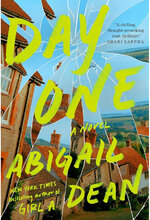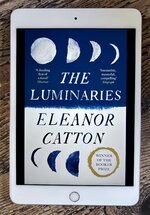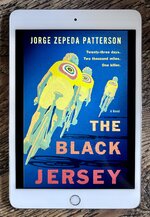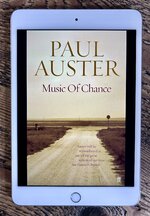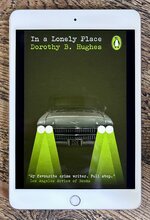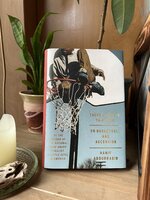Book 6: Don Quixote, by Miguel de Cervantes (Translated by Edith Grossman)
View attachment 197565
Damn fine book; I read it in college 20 years ago and have been meaning to return and try out the Grossman translation. Great translation, btw; Grossman makes the prose really sing, and she includes copious footnotes which contextualize the contemporary literary references and underline the more language-and-culture-specific wordplay. I know I read all of part 1 in school, but I think I skimmed part 2; I actually enjoyed part 2 a lot more this time, as there are fewer digressions and sideplots.
I have
a lecture series I've been watching on the book for more context and deeper understanding of the themes and historical context, but I can already say at this point Cervantes has some timeless things to say about fiction and its place in our lives. If ever you think people's inability to be normal about culture/media is some modern development, I strongly recommend reading this book. The amount of slapstick and Farrelly-style effluvium humor is timeless as well.
Book 7: Ripley Under Ground, by Patricia Highsmith
Picked this up during a weekend trip in the middle of my Don Quixote read; this def went down better on a plane ride than Cervantes. I read Talented Mr. Ripley a few years back and loved it, so I’m trying to crawl through the series.
Under Ground concerns Ripley’s art forgery ring: aware of a reclusive artist’s suicide, Ripley and co. enlist a friend to continue generating works and selling them under the artist’s name. A suspicious interloper throws a spanner in the works, of course. Highsmith writes great suspense and Ripley is a great foil; he’s truly reactive, not so much one step ahead as keenly apace with every plot development.
On that note, I watched the first episode of Netflix’s Ripley, which was pretty good and refreshing in its combination of fleet storytelling and dialogue-free sequences.
Book 8: The Member of the Wedding, by Carson McCullars
Damn fine novella. I’ve never read any McCullars, but am finding myself increasingly a sucker for mid-century southern writers. The relatively simple story concerns a young girl who considers her future and identity in anticipation of her brother’s wedding. Lots of questions of identity and circumstance are thrown around, and I could see one arguing that it’s an early American queer text.
Book 9: Liberation Day, by George Saunders
This has been bouncing around my shelf since November ‘22, when I got to see Saunders speak as part of the Portland Book Fest. Love the guy, love hearing him talk about writing; this is my first collection after reading A Swim in a Pond in the Rain and subscribing to his Story Club substack, so it was interesting seeing the results of a creative process I now understand much more.
For better or worse, this is boilerplate Saunders: while there are exceptions, one notices the repetition of stories about menial workers in strange, dystopic theme parks or living history museums. It’s bizarre to think he’s been writing about this stuff since the 90s, and the gig economy and startup culture is catching up to exactly what he was talking about in CivilWarLand in Bad Decline.
Book 10: What I Talk About When I Talk About Running, by Haruki Murakami
Kinda read this one in the background. I think I was hoping for a bit of meditation on the relationship between exercise and creativity, especially as the book came recommended in an article which excerpted what turns out is the one section on the matter: writing works out Murakami’s mind, running works out his body.
For better or worse, in typical Murakami fashion, he’s very circumspect in discussing running. He runs long distances, and runs every day. He’s quick to say his physiology is unique, and he’s lucky to run so much without injury. In fact, everything about his perspective on running is tempered with understanding that his experience is unique to himself that it comes across as bragging that’s too humble, or humility gilded with braggadocio.
Book 11: Galapagos, by Kurt Vonnegut
I went to Indianapolis to visit my spouse’s family and see the eclipse last week, so I thought I’d pick something up by my favorite hoosier. In high school and college I gobbled up as much of his work as I could; looking now I realize I’m 4-6 books away from having read the bibliography, so perhaps that’ll be an ongoing goal.
This was a great pleasure to read. I really like how Vonnegut can spin the story out from minute details and situations; Galapagos starts with a con artist sitting at a hotel bar, and before that man has even gotten up from his seat the story has become about global war, survival, and the fate of the human race a million years from now. I wish only that my own cynicism towards humanity can be so tempered by genuine, amused affection.


